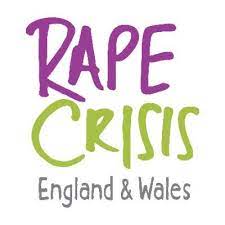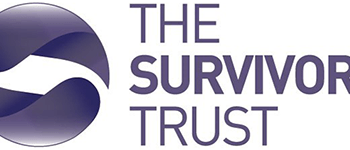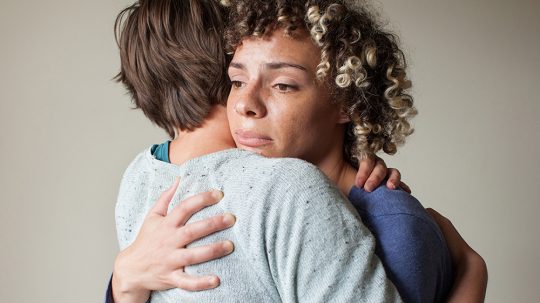Content warning: The following contains discussions of rape and sexual assault that some may find triggering. Read with care.
A year after the Government’s Rape Review, a pilot scheme was announced that would establish three specialist rape courts in England. But with concerns from the sector about access to justice, survivors’ welfare and funding: Will specialist rape courts address low conviction rates and support survivors of domestic abuse and sexual violence?
Three specialist rape courts have been set up to hear rape cases in Newcastle, Leeds and Snaresbrook in London. The three courts were chosen because they currently deal with a higher-than-average number of sex offence cases. However, the Government has confirmed that survivors will not be able to select to have their case heard at these three locations specifically.
The Ministry of Justice (MOJ) has stated that all court staff, police and prosecutors working on these cases will receive specialist trauma training. The MOJ has also stated that ‘expert at-court support’, such as Independent Sexual Violence Advisors (ISVA’s), will be available for survivors. Figures show that with the right support, from services like Independent Sexual Violence Advisor (ISVA), 49% of people were less likely to withdraw from a criminal investigation.
Conviction rates plummet to 1.3%
This year it was reported that survivors are having to wait a 1,000 days (median) between reporting rape to having their case complete. Meanwhile, rape conviction rates are half of what they were in 2019-2020. This year the government confirmed that the overall rape charge rate in England and Wales has dropped to 1.3%.
Rape victims in England have been left facing a ‘postcode lottery’ as conviction rates vary between regions, with some regions more affected. For survivors in Surrey, just 1.3% of reported rapes led to a suspect being charged, whereas in Durham the conviction rate was much higher, standing at 8.2%.
The Government’s Rape Review uncovered delays in investigating allegations of rape and sexual assault, a lack of specialist support for victims, an increase in invasive requests for personal data and strains between police, prosecutors and courts.
The pilot scheme has been called a ‘gimmick’
Lubna Shuja, Vice President of the Law Society of England and Wales said that the latest figures show that there needs to be a ‘radical shift’. Shuja stated:
“Looking at the longer view, the backlog is decreasing at a snail’s pace – by just 286 cases in six months from November 2021 and April 2022 – but the fact the backlog has gone up again in the most recent month tells us the problem will not be resolved without a radical shift from the Ministry of Justice (MoJ).
Meanwhile, the renowned legal commentator and whistleblower, The Secret Barrister, recently called out the MOJ, asking them to fund the system.
They stated: “The perennially dishonest, Dominic Raab is to blame for rape victims being forced to wait years for a trial. He is the one who, in breach of his oath of office, refuses to provide the courts with the resources they need. Stop the gimmicks. Fund the system.”
More need to be done to support survivors of sexual violence
The impact of rape on victims and survivors is devastating. The Crime Survey for England and Wales (CSEW) found that 63% of female victims and 47% of male victims said they had suffered psychological problems’ as a result of the assault. One in ten of those individuals said that they had attempted suicide.
Farah Nazeer, chief executive at Women’s Aid, said:
“Specialist women’s domestic abuse services continue to face a funding crisis, with funding cuts and poor commissioning decisions failing to keep them secure.”
“Women’s Aid estimates that £393m is required for lifesaving refuges and community-based services in England, alongside ring-fenced funding for specialist services, led ‘by and for’ Black and minoritised women, disabled women and LGBT+ survivors.”
New concerns have been raised following the Crown Prosecution Service (CPS) guidance, published earlier this year. Concerns include that it will become more common that rape victims’ private therapy notes will be accessed by prosecutors and used to ‘discredit’ them in court. Women’s Aid has stated that this will deter women from ‘seeking this life-changing and life-saving support’.
Speaking about survivors’ welfare, Nico Ciubotariu chief operating officer at Edinburgh Rape Crisis stated:
“What we hear a lot from survivors has to do with the backlogs in the criminal justice process. So, because of Covid, a lot of cases are being delayed in court or they’re being moved or they’ve been given to survivors and then cancelled. All those delays create a lot of stress on survivors. Survivors who need support.”
The MOJ’s Victims Funding Strategy
The Victims Funding Strategy, announced last month, includes a commitment to multi-year funding for ‘core’ victim support services. The strategy, brought forward by the Ministry of Justice (MOJ) states that it will spend a minimum of £440 million over the next three years, ‘so that organisations can plan for the future’. However, it is currently unclear how the fund will be distributed across the UK and what proportion will go to funding the support of survivors of sexual violence.
Deputy Prime Minister, Lord Chancellor and Secretary of State for Justice, Dominic Raab said:
“Rape convictions are up two-thirds over the last year and cases are being completed 5 weeks quicker. But we are restless to go further, and these pilots will focus on improving support for victims, tackling the backlog and reducing delays.”
“We’re also rolling out pre-recorded evidence faster, recruiting 1000 sexual violence advisors, developing a 24/7 helpline and improving collaboration between police and prosecutors to ensure victims get the justice they deserve.”








